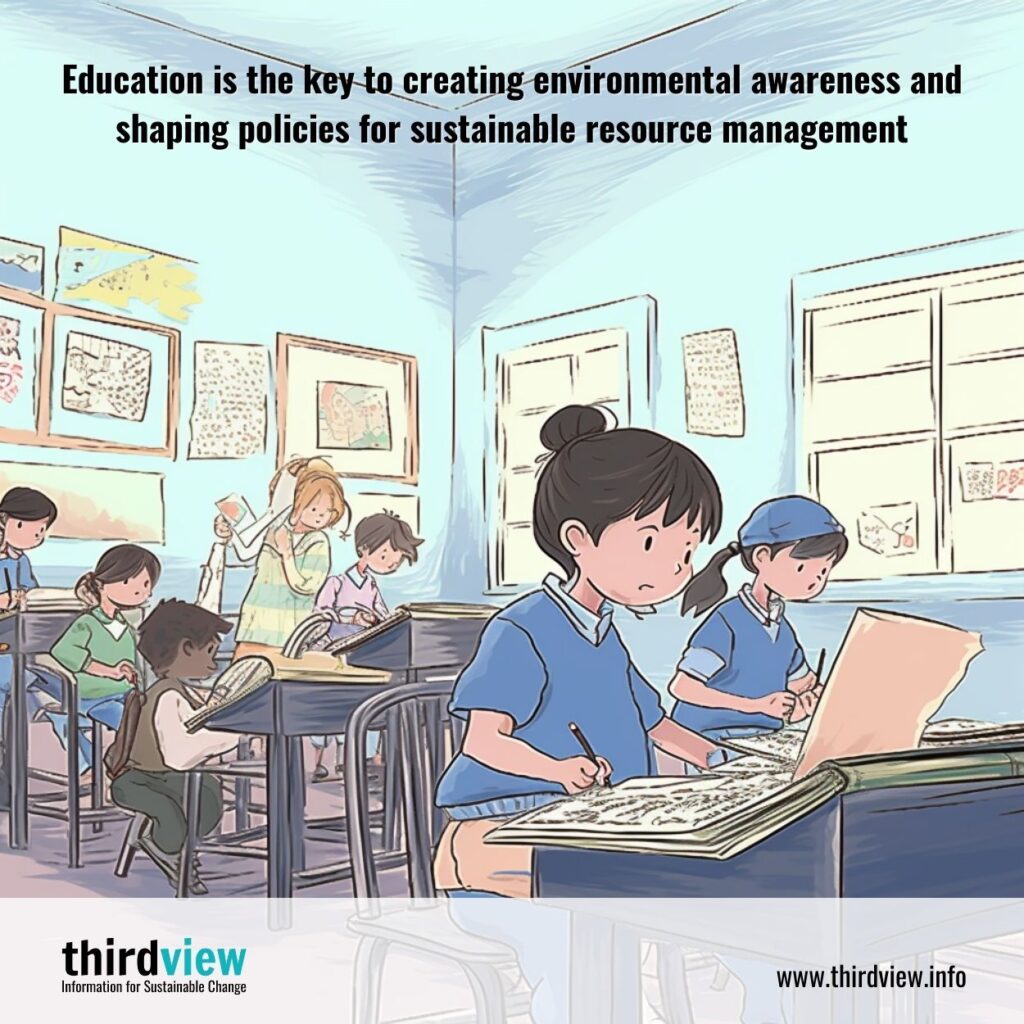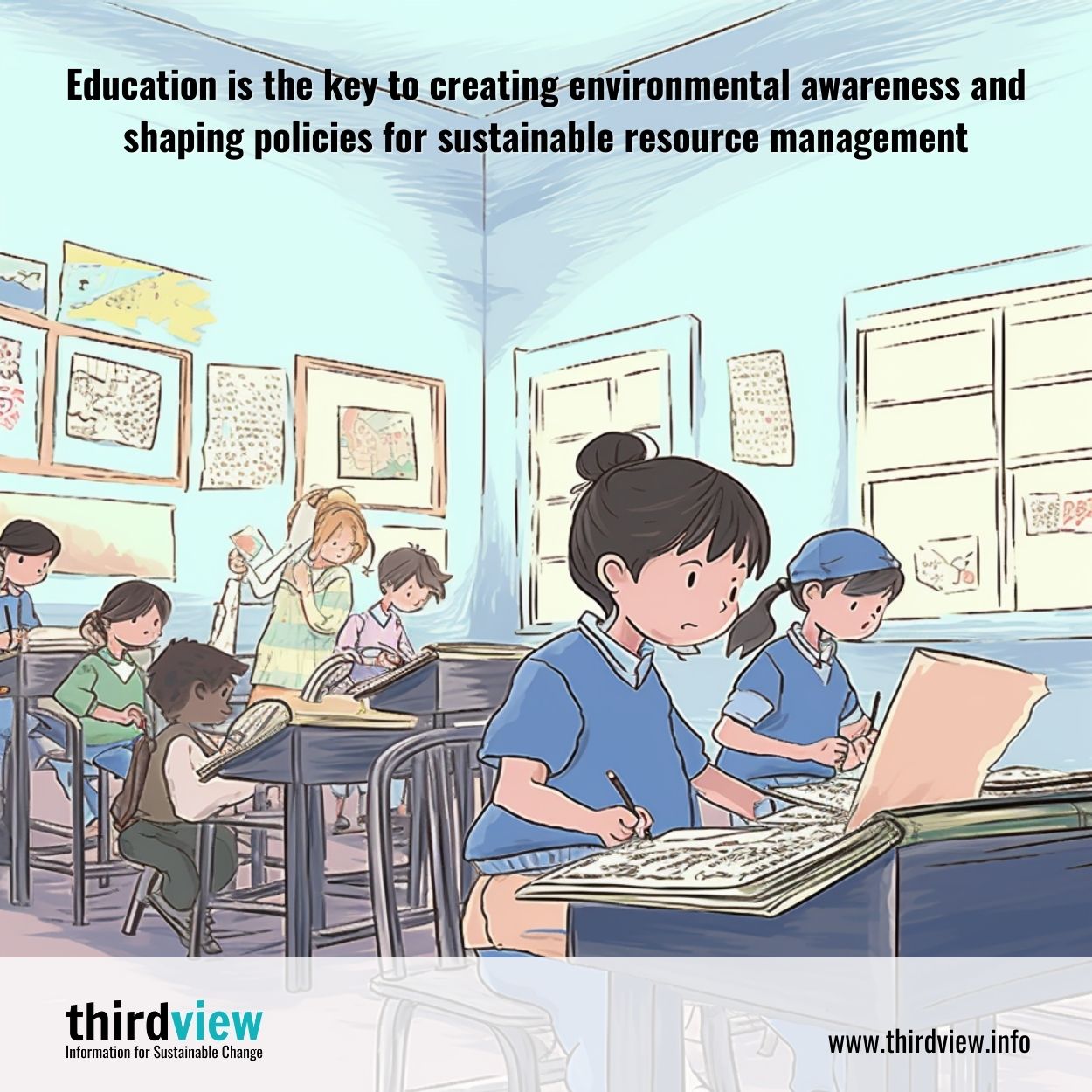Natural resources such as water, forests, fish, and minerals provide crucial support to human life, and their management is essential to ensure their availability for future generations. However, natural resources are under increasing pressure due to population growth, climate change, and exploitative resource management practices. Education is a powerful tool for promoting sustainable natural resource management that can help people learn about the environment, make informed decisions, and shape policies that promote resource conservation and sustainable development.
Enhancing Environmental Awareness
Education can help create environmental awareness and promote sustainable natural resource use by exposing people to the natural environment and explaining the causes and effects of environmental degradation. Through formal and informal education, individuals can learn about the importance of natural resources, their ecological roles, and the impacts of human activities on the environment. Environmental education can also help promote an understanding of the interconnectedness between social and environmental systems, which is essential for making informed decisions and developing sustainable development policies.
Developing Skills for Sustainable Natural Resource Management
Education can provide the necessary skills, knowledge, and attitudes needed to make informed decisions that support sustainable natural resource management. For instance, students can learn about resource conservation, ecological principles, and sustainable development practices, skills that can support community-based natural resource management. Education can also develop critical thinking, problem-solving skills, and creativity needed to resolve complex environmental problems and address sustainable resource management challenges.
Promoting Research and Innovation
Education can contribute to sustainable natural resource management efforts by supporting research and innovation initiatives that focus on natural resources. For instance, schools and universities can provide research opportunities for students to study natural resources and develop sustainable management solutions. Education can also support sustainable natural resource management innovations by promoting science, technology, engineering, and mathematics education, and integrating these disciplines into natural resource management policies and practices.
Advocacy and Policy Development
Education can also help promote sustainable natural resource management by raising awareness and advocating for policies to protect the environment. Through education, individuals can learn about sustainable natural resource management policies, environmental laws, and regulations that seek to protect natural resources and promote sustainable development. Through advocacy, students can influence policies and decision-makers to reflect sustainable resource management principles. By advocating for sustainable natural resource management practices, individuals can support the protection of natural resources and ensure their availability for future generations.
Community-Based Natural Resource Management
Education can promote community-based natural resource management approaches that focus on the development of sustainable development practices that support local environmental conservation. By promoting community-based natural resource management, education can help address environmental degradation and promote sustainable natural resource management. Community-based natural resource management approaches are essential to empower people and promote inclusivity, respect, and knowledge-sharing that support sustainable resource management.
The role of education in promoting sustainable natural resource management is essential. Education can help enhance environmental awareness, develop skills, promote research and innovation, support advocacy and policy development, and promote community-based natural resource management. By promoting education for sustainable natural resource management, individuals, institutions, and governments can ensure that natural resources are sustainably managed, conserved, and used for the benefit of the present and future generations. Education is a powerful tool for sustainable resource management and should be promoted as a priority for environmental conservation and sustainable development.


